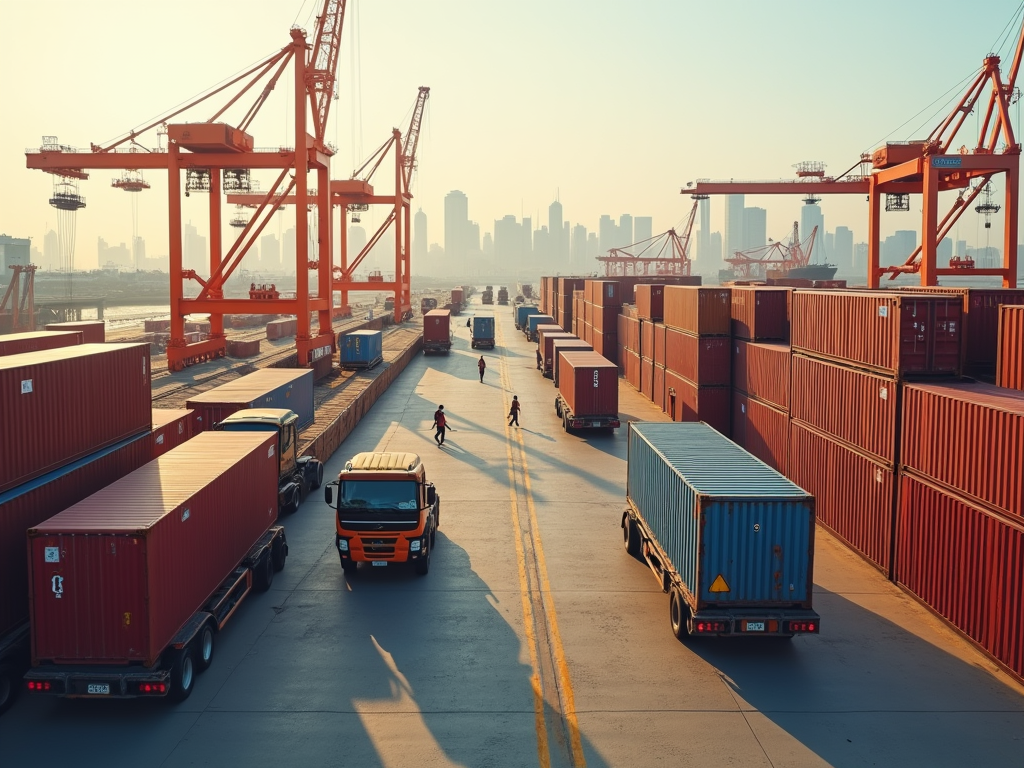Dubai’s trade free zones play a significant role in bolstering global commerce by providing a business-friendly environment that attracts international companies. Established with the vision of making Dubai a global trade hub, these zones offer numerous incentives, including 100% foreign ownership, tax exemptions, and simplified administrative processes. They serve as a bridge between East and West, facilitating the flow of goods and services while fostering innovation and economic diversification. Through these free zones, Dubai not only enhances its own economy but also contributes significantly to the global supply chain dynamics. This article will delve into the key features and advantages of Dubai’s trade free zones, exploring their impact on international business.
Understanding Dubai’s Trade Free Zones

Dubai’s trade free zones are designated areas where businesses can operate under specific regulatory frameworks that are often more favorable than the mainland. These zones were created to attract foreign direct investment and foster a diverse economy. They provide several crucial benefits, such as:
- 100% Foreign Ownership: Unlike other regions in Dubai, foreign investors can fully own enterprises within the free zones without the need for a local partner.
- Tax Incentives: Businesses enjoy exemptions from various taxes, including corporate tax and import/export duties, for a specified period.
- Streamlined Licensing: The process for obtaining business licenses is considerably simplified and accelerated, enabling quicker market entry.
- Customs Duty Exemptions: Goods imported into the free zones are exempt from customs duties, making it more cost-effective to do business.
- Infrastructure and Facilities: Free zones often offer top-notch facilities, such as warehousing, office space, and logistical support, tailored for diverse industries.
The Economic Impact of Trade Free Zones

The economic implications of Dubai’s trade free zones extend beyond the immediate benefits available to businesses within these areas. They act as catalysts for trade and investment flows, attracting multinational corporations and fostering global partnerships. Furthermore, free zones contribute significantly to the UAE’s GDP by:
- Job Creation: The establishment of new businesses in these zones generates employment opportunities, boosting local economies.
- Attracting Talent: Free zones draw skilled professionals from around the globe, fostering a diverse workforce that drives innovation.
- Enhancing Exports: With relaxed regulations and improved logistics, companies in free zones can easily tap into international markets.
- Driving Innovation: The competitive environment within free zones encourages businesses to innovate and adopt new technologies.
- Promoting Economic Diversification: Dubai’s trade free zones help reduce reliance on oil revenues by cultivating a more robust, diversified economy.
Dubai is home to several prominent trade free zones, each catering to specific sectors and industries. Some of the most notable include:
- Jebel Ali Free Zone (JAFZA): One of the largest free zones, JAFZA specializes in logistics and manufacturing, housing over 7,000 companies.
- Dubai Multi Commodities Centre (DMCC): Primarily focused on commodities trading, DMCC has become a global hub for diamond, gold, and precious metals trade.
- Dubai Silicon Oasis (DSO): This technology park promotes innovation and entrepreneurship in the tech sector, supporting startups and established firms alike.
- Dubai Healthcare City: Aimed at healthcare providers, this free zone fosters medical tourism and enhances the healthcare industry in the region.
- Dubai Aviation City: Centered around the aviation sector, this free zone enhances Dubai’s position as a leader in aviation services and technologies.
Challenges and Future Outlook
While Dubai’s trade free zones contribute significantly to global commerce, they are not without challenges. As competition among global trade hubs intensifies, Dubai must continually adapt and innovate. Current challenges include regulatory complexities, the need for sustainable practices, and the impact of global economic fluctuations. However, the future outlook is promising, with ongoing investments in infrastructure and technology aimed at enhancing competitiveness. Furthermore, Dubai’s strategic location remains a unique advantage, allowing it to serve as a logistics and trade nexus between continents.
Conclusion
In conclusion, Dubai’s trade free zones are pivotal in shaping global commerce by creating an attractive, investment-friendly environment. Through tax incentives, streamlined processes, and robust infrastructure, these zones not only enhance the UAE’s economy but also support international businesses in their growth endeavors. As Dubai continues to evolve and face new challenges, its free zones will remain crucial in driving economic diversification and reinforcing the region’s status as a global trade hub.
Frequently Asked Questions
1. What are the benefits of operating in Dubai’s trade free zones?
Businesses in these zones enjoy advantages such as 100% foreign ownership, tax exemptions, simplified administrative processes, and robust infrastructure tailored for diverse industries.
2. How many trade free zones are there in Dubai?
Dubai boasts a variety of trade free zones, with more than 30 established, each catering to different sectors and industries, thus enhancing its economic diversity.
3. Can foreign investors fully own businesses in free zones?
Yes, foreign investors are permitted to have 100% ownership of their businesses within Dubai’s free zones, a privilege not commonly found in other regions.
4. Do free zones encourage employment opportunities?
Absolutely! The establishment of new businesses leads to job creation, which greatly benefits the local workforce and economy.
5. What challenges do Dubai’s trade free zones face?
Challenges include regulatory complexities, competition from other global trade hubs, the need for sustainable business practices, and economic fluctuations impacting global trade.


